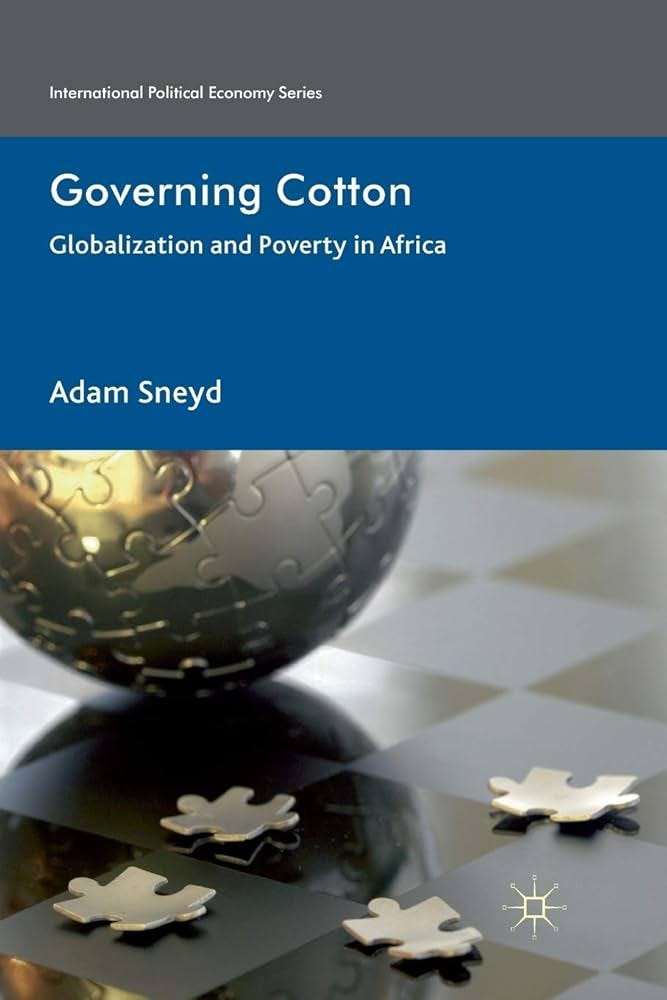Exploring the Global Politics of Cotton: Governing Cotton by Adam Sneyd
This book invites us to rethink the structures and practices that shape one of the world’s most important industries, offering a pathway to more equitable and sustainable governance in global trade.
In Governing Cotton: Globalization and Poverty in Africa, Adam Sneyd illuminates the cotton industry’s impact on poverty across Africa, dissecting the intricate relationships between global economic forces and local livelihoods. Through a detailed exploration of cotton production in an era of economic globalization, Sneyd exposes how the industry sustains and exacerbates poverty on the continent, challenging conventional narratives that paint globalization as a force for progress.
This work dives into the often-overlooked influence of cotton—a staple crop and economic lifeline for millions of African farmers—within global supply chains and the multifaceted governance structures that shape its production. Scholars and practitioners have praised Sneyd’s balanced assessment of these complex dynamics. As Jomo Kwame Sundaram, former UN Assistant Secretary-General for Economic Development, highlights, this book offers “a thoughtful and balanced assessment of the linkages between cotton production and poverty in Africa.”
Professor Sneyd further enriches his analysis by examining emerging governance mechanisms, such as corporate social responsibility (CSR) initiatives, and their efficacy in alleviating poverty. These CSR efforts, while aimed at promoting sustainability and fairness, often fall short of addressing the systemic inequalities ingrained in global trade. By analyzing these initiatives with both nuance and detail, Sneyd encourages readers to question the true impact of these seemingly “ethical” practices on African economies and societies.
This critical examination has made Governing Cotton a valuable resource in fields ranging from African studies to political economy and international development. As Jennifer Clapp from the University of Waterloo notes, Sneyd’s insights are “rich in detail and highly engaging,” providing readers with a compelling look at the cotton industry’s far-reaching consequences.
Governing Cotton is essential reading for anyone interested in understanding the realities of globalization and poverty in Africa. This book invites us to rethink the structures and practices that shape one of the world’s most important industries, offering a pathway to more equitable and sustainable governance in global trade.


